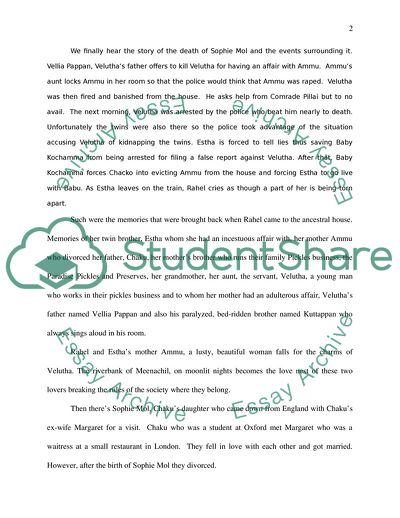The God of Small Things Essay Example | Topics and Well Written Essays - 2000 words. https://studentshare.org/english/1728121-english-essay-the-god-of-small-things
The God of Small Things Essay Example | Topics and Well Written Essays - 2000 Words. https://studentshare.org/english/1728121-english-essay-the-god-of-small-things.


